France
participants
ESN France's Annual General Meeting, a key democratic moment for our association, was the occasion for a National Policy Dialogue following the European elections, which was all the more important and necessary in view of the results of these elections and the implications for French national policy. For this round table, the discussion focused on the following theme: "Generation Erasmus in action: how to encourage the participation and commitment of local and international students". Bringing together political representatives and student representatives, the aim of this event was to initiate reflection and discussion on young people's involvement, both in their local area and internationally, and to reflect on their role and inclusion in their local political ecosystem.
Several speakers took part:
- Nathan SOURISSEAU : Conseiller municipal délégué à la Jeunesse et la Vie étudiante - Ville de Besançon
- Coralie MAYEUR-CARPENTIER : Vice Présidente Vie Étudiante - université de Franche-Comté
- Julien PEA : Directeur - Maison de l’Europe Bourgogne-Franche-Comté
- Justine GAUDILLAT : Déléguée Générale - ESN Besançon
The panel discussed the various ways in which young people's commitment can be encouraged, notably through recognition and valorization initiatives implemented at different levels and by different players (formal/non-formal education/civil society). For example, the Université de Bourgogne Franche-Comté presented its scheme for awarding ECTS credits to committed young people, as well as a supplement to their grade point average (0.2 points). It was thus clearly stated that young people's commitment must be facilitated and encouraged. The different types of commitment were also discussed, with young people today getting involved in many ways that differ from "traditional" forms, often translating into political involvement. A need to recreate links and reaffirm a taste for "public affairs", particularly in an electoral context, was identified, along with the need to work on understanding institutions (local/national/European). The social role of commitment was also emphasized: for international students in particular, coming together around a shared commitment enables them to break out of the isolation they may feel when they first arrive on a mobility scheme, and so forge links both interpersonally and with their host region. In the end, the discussion led to a sharing of best practices, with representatives of some local associations finding themselves interested in the Besançon area's promotion/engagement practices, and wishing to share them with their own local realities.
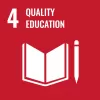
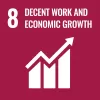
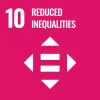
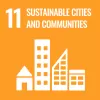
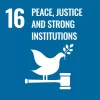
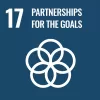
This activity is part of the project:
Erasmus Generation in Action (EGiA)